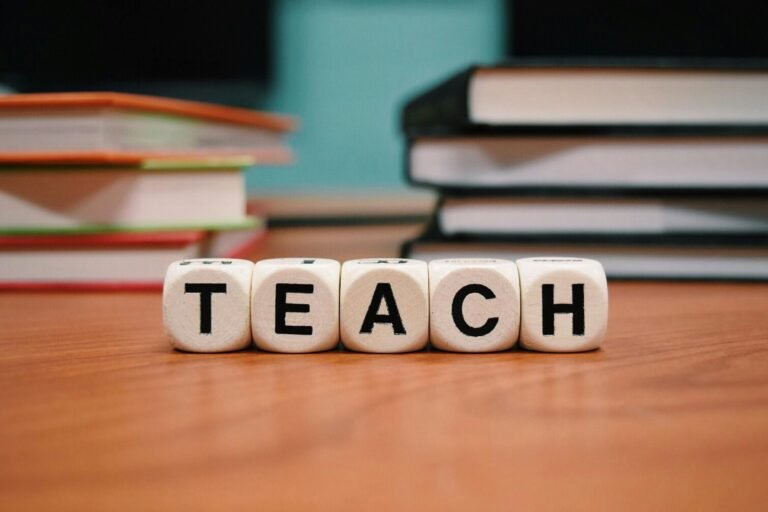In today’s digital age, artificial intelligence (AI) is often seen as a helpful tool for almost everything—from drafting emails to creating lesson plans. So, when it comes to something as critical as your resume, it can be tempting to let AI take charge of the process. However, while AI can serve as a useful starting point, relying solely on it to create your resume can result in a missed opportunity to truly showcase who you are as a professional who supports schools through their work.
In this article, we will share some key reasons as to why you should approach AI-generated resumes with caution and make sure to personalize and tailor them for maximum impact.
Your Resume is a Personal Story—Let It Reflect YOU
Your resume should be an authentic reflection of your journey, your skills, and your passion for education. As an educator, whether you’re a teacher, camp counselor, tutor, or school administrator, your resume is more than just a list of qualifications—it’s a way to convey your experiences, your philosophy, and what drives you. While AI can help structure your resume and generate a solid foundation, it can’t capture the depth and personal insights that only you can provide. Your unique experiences, the way you engage with students, and the challenges you’ve overcome while working in schools are best expressed in your own words, not in a cookie-cutter format.
AI Can’t Capture the Nuances of School or Education-Specific Experience
In the education sector, the skills you develop and the situations you face are often complex and nuanced. From fostering inclusive environments to adapting lesson plans for different learning styles, the work you do is multifaceted. AI may help you identify the key points to include on your resume, but it can’t truly articulate the special nuances of your experience in education. For example, how do you showcase your ability to manage a diverse classroom, handle challenging situations, or create meaningful relationships with students? These types of details require a personal touch, and while AI can give you a place to start, you’ll need to fine-tune your resume to reflect these experiences in a way that’s meaningful, impactful, and resonates with your prospective employer.
AI Can’t Adapt to Specific Job Requirements
Every job in schools or in the general education sector is different. Whether you’re applying for a teaching position, a camp director role, or a school counselor position, each one demands a unique set of skills and qualifications. AI-generated resumes are typically one-size-fits-all templates, which may not perfectly align with the specific needs of the position you’re applying for. Sure, AI can help you craft a general resume, but tailoring it to each job posting is crucial. Personalize your resume to highlight how your skills directly meet the needs of the school, camp, or organization, and demonstrate why you’re a perfect fit for the role.
Resumes Are About Authenticity, Not Just Keywords
Yes, it’s true that many companies use Applicant Tracking Systems (ATS) to screen resumes for relevant keywords. But simply stuffing your resume with buzzwords isn’t enough to make a lasting impression, especially in education. Hiring managers in schools, camps, and other educational organizations are looking for more than just keywords—they want to know if you’re a good cultural and philosophical fit for their team. AI can help with optimizing your resume for ATS, but it can’t infuse it with the authenticity and warmth that make you stand out. Tailoring your resume with personal insights and real examples of your work will set you apart from other candidates.
AI Can’t Show Your Passion for Working in Schools
One of the most valuable qualities you can demonstrate in your resume, especially in education, is your passion. Whether you’re applying for a role as a teacher, school counselor, or camp director, your resume should reflect your enthusiasm for working with students and creating a positive learning environment. While AI can organize your qualifications and experience, it can’t capture the emotional connection you have with your work or your dedication to fostering student success. By writing your own resume, you can infuse it with the passion and energy that AI simply can’t replicate.
Creating Your Resume is a Chance for Self-Reflection
Writing your resume is a reflective process. It gives you an opportunity to assess where you’ve been, what you’ve accomplished, and where you want to go in your career. AI can help generate a first draft, but it can’t provide the same level of introspection. When you take the time to craft your resume yourself, you think about your key accomplishments, the impact you’ve had on students, and how you want to grow in the future. This self-reflection is invaluable for career development and can guide you in your professional journey.
AI Might Miss Key Soft Skills
In education, soft skills like empathy, communication, and patience are just as crucial as technical expertise. AI may help highlight your certifications and qualifications, but it can miss the important interpersonal skills that make you a great educator. Your ability to connect with students, manage classroom dynamics, and collaborate with colleagues is often what sets you apart. These soft skills are best showcased through personal stories and examples, something that AI-generated resumes can’t capture as effectively. By adding these soft skills into your resume yourself, you’ll give hiring managers and committees a deeper understanding of your strengths.
You Control the Voice and Tone
When you write your resume, you have complete control over the voice and tone. Whether you want to come across as formal and professional or warm and friendly, your resume should reflect your personality and approach to education. AI can create a polished document, but it won’t match your unique writing style or the way you communicate your value. It’s important to tailor your resume so that it truly feels like you, which can help you make a lasting impression on the hiring team.
In Closing
AI can serve as a helpful tool for drafting your resume. It can provide a structured starting point, help you organize your qualifications, and even optimize your resume for ATS. However, it’s crucial to remember that a resume is more than just a list of qualifications—it’s your opportunity to tell your personal story and showcase the unique qualities that make you an excellent fit for an education-related role. By taking the time to personalize your resume, you ensure that it reflects your passion, experience, and personality in a way that no AI tool can.
You should definitely consider using AI to help you get started, but remember: your resume should ultimately be a reflection of you, your journey in education, and your readiness to make a lasting impact on students and the community. We wish you the best of luck and you work to craft a compelling resume that is a reflection of who you are as an individual.









